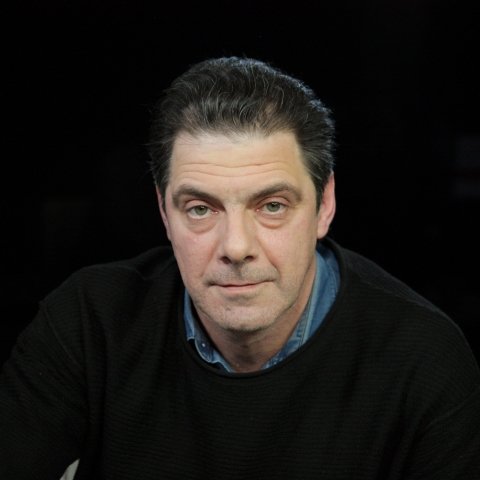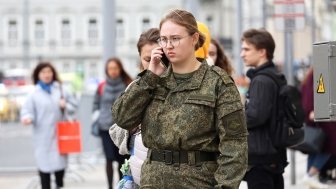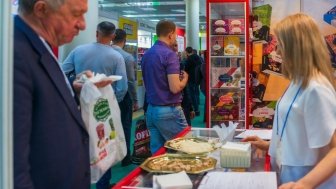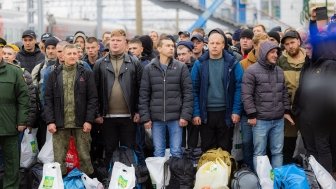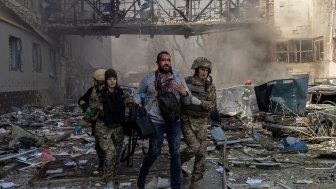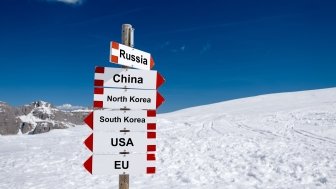Kirill Rogov
Former George F. Kennan Scholar; Kennan Correspondent on Russian Media and Society
Professional Affiliation
Political Analyst, Liberal Mission Foundation
Expert Bio
Kirill Rogov is a well-known political analyst in Russia and is frequently quoted in the West by the Economist, New York Times, and the Washington Post. He regularly publishes his columns and analysis in Forbes Russia, Vedomosti, Novaya Gazeta, RBC and also in Suddeutsche Zeitung and Financial Times.
He is a senior researcher with the INDEM Foundation and a Board Member of the Liberal Mission Foundation.
In the late 1990s, he started his career in journalism. In 1998 he co-founded the news and opinions portal “Polit.Ru” (and was editor-in-chief of Polit.ru from 1998–2003). Polit.Ru was one of the first Russian on-line media sites and played a prominent role in the development of Russian on-line journalism and independent media, providing the main platform for expert discussion among Russian liberals at the time. During the 2000s, Rogov was columnist with the leading Russian business daily Vedomosti, and from 2005-2007 he was deputy editor-in-chief at the Kommersant daily, another leading Russian newspaper. While at Kommersant, he introduced and supervised the “Commentaries and Opinion” page.
From 2007-2015, he was the leading research fellow at the Institute for Economic Policy (Gaidar Institute) and the Russian Presidential Academy of National Economy and Public Administration (RANEPA). In 2012-2013, he coordinated the work of Gaidar Institute on the Russian economic development reports for the Russian Government and the Ministry of Economic Development. In 2015, he edited the analytical report “Monitoring of the Current Economic Situation” published by the Gaidar Institute and RANEPA.
Wilson Center Project
Public Opinion Under Authoritarian Regime: Political Mobilization and Demobilization in Russia in 2010-2015
Project Summary
In democratic countries opinion polls are used as a matter of course to study public opinion. Dictators, on the other hand, either take little interest in this issue or prefer to conceal the real results from their societies. In the USSR/Russia, the first public opinion studies were conducted only in the late 1980s during the democratization wave under Gorbachev and flourished in the 1990s, when Russian politics was competitive enough and mass media were more or less free.
In the 2000s the Russian political regime became more and more authoritarian, and mass media – less and less free, and television found itself under strict political control. Hence crucial theoretical and methodological questions can be raised: can the data obtained as a result of mass polls about aggregate population preferences under authoritarian regimes be considered equally valid as they are in democracies? And how should we interpret these data? In authoritarian regimes access of citizens to alternative viewpoints and interpretations is limited, and mass media with the largest coverage form a unilateral information flow intensively broadcast a single point of view. How does that reflect on the poll outcomes and what information on preferences can we extract from them as a result?
Major Publications
· Can “Putinomics” Survive? European Council on Foreign Relations. Policy Memo, June 2015: http://www.ecfr.eu/publications/summary/can_putinomics_survive3049
· Triumphs and Crises of Plebiscitary Presidentalism // Putin’s Russia. How It Rose, How It Is Maintained, and How It Might End. Ed. By Leon Aron. American Enterprise Institute, May 2015
· The Oil Price Will Set the Test for Putin’s Resource Nationalism // Financial Times, Nov 30, 2014: http://www.ft.com/intl/cms/s/0/481cbf0c-771d-11e4-8273-00144feabdc0.html#axzz41dlzUuDO
· Forty Years in the Desert: The Political Cycles of Post-Soviet Transition // Russia 2025. Scenarios for the Russian Future, Palgrave Macmillan, 2013
· The “Third Cycle”: Is Russia Heading Back to the Future? // Russia 2020. Scenarios for the Future. Ed. Maria Lipman, Nikolay Petrov, 2011: http://eng.globalaffairs.ru/number/The-Third-Cycle-Is-Russia-Heading-Back-to-the-Future-15141
